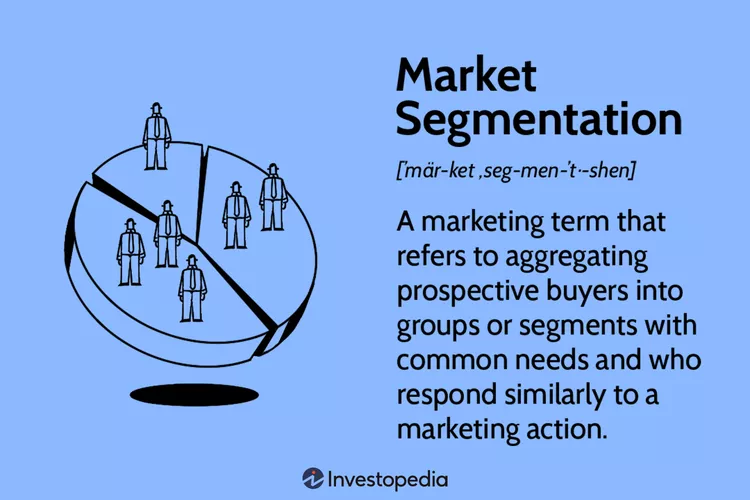In the realm of marketing, precision targeting through effective market segmentation is a powerful strategy that allows businesses to reach the right audience with the right message. By understanding the nuances of various market segments, companies can tailor their products, services, and messaging to meet the specific needs and preferences of different customer groups. In this blog post, we’ll delve into the intricacies of precision targeting and explore how mastering market segmentation strategies can significantly impact the success of your marketing efforts.
Understanding Market Segmentation
Market segmentation involves dividing a broad target market into smaller, more defined segments based on distinct characteristics such as demographics, psychographics, behavior, and geographic location. This approach enables businesses to gain deeper insights into the diverse needs and behaviors of their customers, allowing for more personalized and targeted marketing initiatives.
The Importance of Precision Targeting
Precision targeting, an integral part of market segmentation, revolves around directing marketing efforts at specific segments of the market that are most likely to respond positively to those efforts. This strategy not only maximizes the impact of marketing campaigns but also optimizes resource allocation by focusing on the most lucrative segments.
Tailoring Marketing Efforts
By segmenting the market and employing precision targeting, businesses can craft tailored marketing messages and promotions that resonate with each segment’s unique preferences, behaviors, and pain points. This level of personalization enhances the relevance of marketing communications, leading to higher engagement and conversion rates.
Benefits of Effective Market Segmentation
Mastering market segmentation strategies offers several compelling benefits for businesses aiming to refine their marketing approach. Firstly, it facilitates enhanced customer satisfaction by delivering products and services that align closely with the needs and desires of specific customer segments. Moreover, precise targeting results in improved marketing ROI, as resources are channeled toward the segments with the highest potential for conversion.
Elevating Brand Loyalty
Through precision targeting, businesses can cultivate stronger connections with customers by demonstrating a deep understanding of their preferences and providing tailored solutions. This, in turn, fosters brand loyalty and advocacy within segmented customer groups, creating a loyal customer base that is more likely to engage with the brand over the long term.
Enhancing Business Banking with Market Segmentation Strategies
Business banking in Utah can greatly benefit from the application of precision targeting and market segmentation strategies. Financial institutions can adopt these approaches to identify and cater to the unique financial needs of various business communities within the state. Whether it’s a start-up tech company in Salt Lake City or a family-owned farm in rural Utah, adapting banking products and services to suit the specific requirements of each segment ensures that banks can provide more relevant, personalized banking experiences. This not only helps in attracting a diverse client base but also reinforces customer loyalty as Utah businesses feel understood and supported by their financial partners.
Implementing Segmentation Tactics
Understanding the fundamentals of market segmentation is merely the beginning. The real challenge lies in the effective implementation of segmentation tactics. It involves collecting and analyzing data to identify market segments, developing segment-specific marketing plans, and continuously monitoring the results to iterate and refine targeting strategies. Companies must invest in robust analytics platforms and expertise to uncover insights that can inform their segmentation strategy. Furthermore, marketers should remain agile, adapting to customer feedback and market trends to ensure their segmentation remains relevant and effective.
Leveraging Data for Segmentation
In today’s digital age, the abundance of consumer data presents unparalleled opportunities for businesses to refine their market segmentation strategies. Analyzing data related to customer demographics, online behavior, purchase history, and interactions with the brand can yield valuable insights that inform precise targeting and segmentation efforts.
Harnessing Advanced Technologies
Advanced technologies, such as machine learning algorithms and predictive analytics, empower businesses to extract actionable insights from vast datasets, enabling them to identify and target highly specific customer segments with unparalleled accuracy.
In conclusion, precision targeting through effective market segmentation is a cornerstone of successful marketing strategies. By meticulously delineating distinct market segments and tailoring marketing initiatives to address their unique characteristics, businesses can forge stronger connections with customers, boost brand loyalty, and drive sustainable growth. Embracing precision targeting and mastering market segmentation strategies equips businesses with the tools to deliver personalized, impactful marketing experiences that resonate deeply with their target audience.

